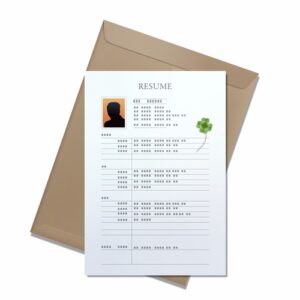Career Advice for Job Seekers
No Experience? No Problem! How to Write Resumes as a Graduate
Graduates have it tough these days. It seems like every job in your career path requires at least two years’ worth of work experience—even for entry-level jobs. This makes filling out your resume difficult, since few graduates will be able to meet that requirement.
However, there is a way for the inexperienced to write effective resumes that doesn’t involve lies and half-truths. What you’ll need to focus on is the knowledge and skills that you’ve gained in a practical setting, aside from the workplace.
Here is a step-by-step guide on how a graduate can overcome their inexperience.
Value Statement
The value statement should be the first section below your header. It typically consists of a brief overview of what you have to offer to an employer, including the following information:
- The profession and industry on which you’re focused
- Your most significant academic credentials
- Your main strengths and skills as a potential employee in your chosen field
- One major achievement demonstrating how you used your skills in a practical setting
Try to limit yourself to four or five sentences for this section. You want to hit all of the important points but do so concisely, as it makes it easier for the hiring managers to read your resume and digest the information—that goes a long way to impressing them.
Example:
Core Competencies/Areas of Proven Performance
This section is where you list all of the skills you possess that are in any way relevant to the job in question: proficiency with specific computer programs, general work skills, fluency with other languages, and so on. The point is to assure the hiring managers that you have the capabilities they’re looking for—and maybe a few bonus skills for good measure.
Don’t elaborate on each skill, just organize them in a bulleted list in a way that doesn’t take up too much space, but is also still easily readable.
Example:
Education
As a graduate, the education section is the most important for your resume, as it will be what shows the hiring manager that you do have experiences and skills to get the job done—you just got them from school rather than work.
Begin by including your university and/or college credentials. Below that, write a list of courses and class projects that are relevant to the specific job posting for which you’re applying. For each project you include you need to include the following information:
- The overall scope of the project
- The roles and responsibilities asked of you
- The overall result of your finished project
Example:
Relevant Experience
This section should include any skills and experiences you gained from outside of the classroom—things like work experience, internships and co-ops that involve you performing practical tasks in a work or work-like setting.
Limit your entries to experience that’s relevant to the job you’re applying for—that job you had as a retail cashier for a couple of months one summer isn’t going to win any points with the hiring manager reading your resume.
If you find that your Education section was short or weak, but you have a long list of quality experiences for this section, you can swap the two and put this in a more prominent position.
Example:
Other Experience
What you wind up calling this section depends on what you have to include within it. This is where you list any other practical experience you have, such as volunteer work or extracurricular groups (like clubs or associations).
Examples:
Or
Finishing Up
The examples above are a bit long, so do not be concerned if you find that your resume is shorter. In fact, you’ll want to keep your resume to one page in length so avoid trying to pad it with made up information or longer sentences and fonts. Most hiring managers will only scan through your resume for six or seven seconds anyways.
So it’s very important to be as concise as possible. You want to list your relevant information as briefly as possible, but make the resume as a whole quick and easy to read. If you can find the right balance, the hiring managers will find out more about you in the six or seven seconds they spend scanning your resume than if you filled each entry with unnecessarily long sentences. They’re also more likely be impressed by your ability to write a great resume.
It will take some time and maybe a few re-writes and edits, but that will only show through on your resume if done right!
Brian Stewart is a Career Content Writer at ResumeTarget.com. They are the only resume writing company that offers a professionally written resume, coupled with the guidance of recruiters, to guarantee that your resume will get results.
New Job Postings
Advanced Search